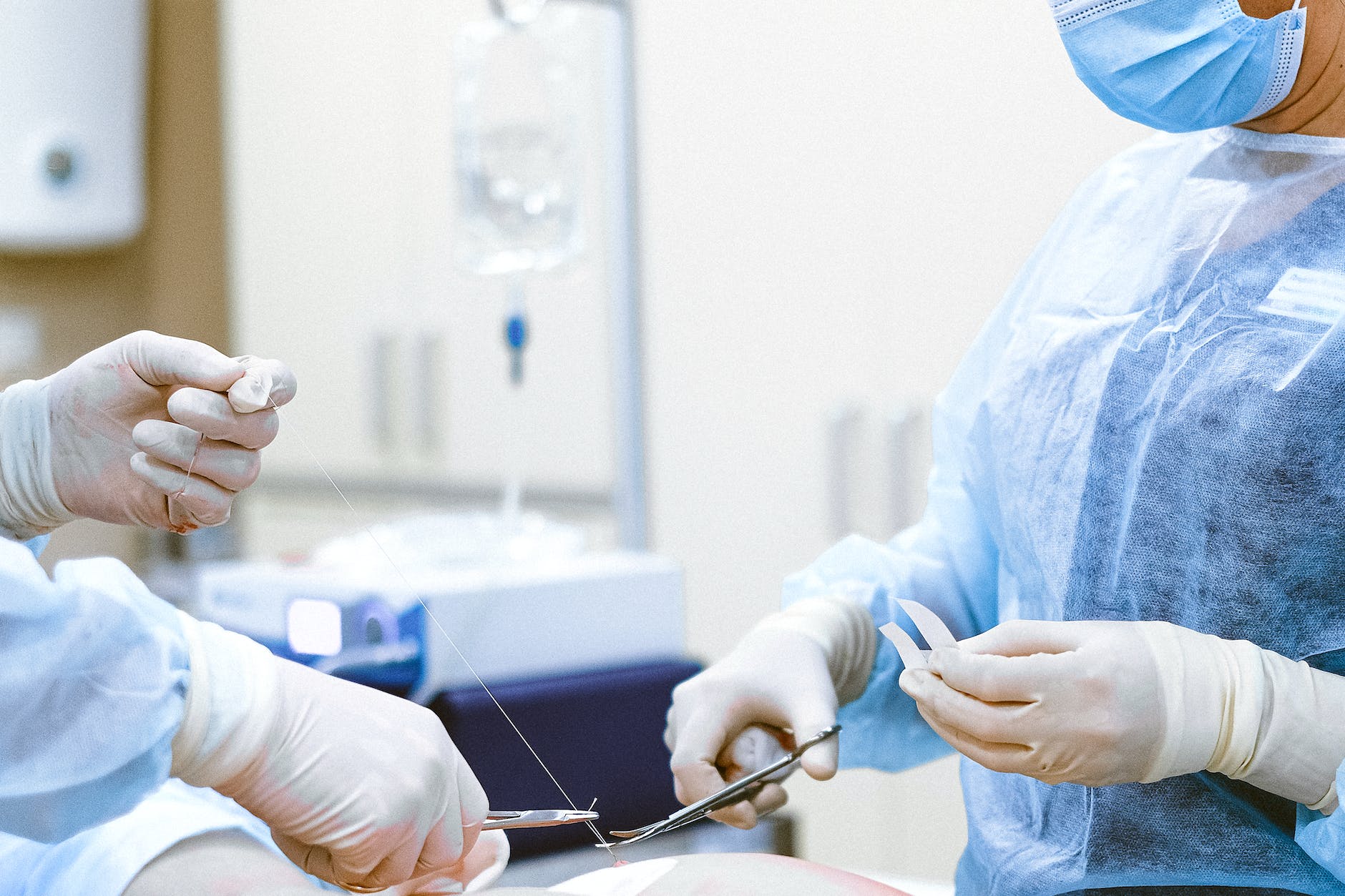
Surgery
Joint replacement surgery is a procedure that is used to relieve pain, stiffness, and other common diseases like arthritis. Individuals with limited mobility and severe joint pain may need to undergo joint replacement surgery to have their joint replaced.
Before deciding to undergo joint replacement surgery, patients should explore all other non-surgical treatment options, such as physical therapy, medication, and lifestyle changes. But if you and your attending doctor have determined that joint replacement surgery is the best course of action, you need to look for a professional surgeon and seek more information on the procedure.
The joint replacement surgery process begins with an essential first step: scheduling an appointment with a qualified surgeon. During this appointment, the surgeon will offer you the necessary information about the procedure and proper preparation guidelines to ensure the surgery goes as smoothly as possible. The surgeon may also conduct a physical exam, a medical history review, and a discussion of your treatment options. Before the appointment, however, it’s crucial to be well-prepared.
Preparing For Your Appointment
Before the actual day of appointment, you need to prepare by doing the following:
- Research The Surgeon And Hospital
The first step in preparing for joint replacement surgery is to research the surgeon and hospital where the surgery will occur. This step is essential since the surgeon’s skills, experience, and the hospital’s reputation can impact the overall success of the surgery.
When researching a surgeon, start by checking their credentials and experience. Consider a surgeon who is well experienced and has been certified in orthopedic surgery, has experience performing joint replacement surgery, and has a good track record. You can find such information on the surgeon’s website.
When choosing a hospital for joint replacement surgery, it’s important to consider several factors beyond just online reviews and ratings. One essential factor is the hospital’s equipment and technology. Joint replacement surgery requires specialized equipment and technology that not all hospitals may have. A hospital with the latest technology and equipment can help ensure the surgery is performed with precision, reducing the risk of complications.
- Have All Your Medical Records
The second step in preparing for a joint replacement appointment is gathering your medical records. This step is important because your medical history can affect the surgery’s success and recovery. Your medical records should include the following:
- Any previous surgeries you’ve had
- Medical conditions
- Medications you are currently taking
- Any allergies you have
To gather all your medical records, contact your previous medical practitioners and any specialists you have dealt with before. It’s essential to contact them ahead of time to request that they send your medical records. It’s important to do this well in advance of your appointment to allow the surgeon enough time to review your records and determine whether you are a suitable candidate for the surgery.
- Prepare A List Of Questions To Ask
The third step in preparing for a joint replacement appointment is to have a list of questions to ask your surgeon. This is important because it will help you better understand the surgery, what to expect before, during, and after the surgery, and any risks or complications that may come up.
Here are questions to consider asking during the appointment:
- What to do and not to do before and after the surgery
- The recovery process and timeline
- Any potential risks or complications
- What to expect during the hospital stay
- When you can return to normal activities
By preparing a list of questions ahead of time, you can ensure you have all the information you need to make an informed decision concerning the surgery.
Preparing for joint replacement surgery requires careful research and preparation. By researching the surgeon and hospital, gathering your medical records, and scheduling a list of questions to ask, you can ensure that you are well informed and ready for the appointment.
Here is complete detail on what to expect during your joint replacement surgery appointment:
- Physical Exam And Review Of Medical History
During your appointment, your surgeon will conduct a physical exam to evaluate the range of motion, strength, and stability of the affected joint. This examination will help determine the overall health of your joint.
The surgeon will also review your medical history, including any previous surgeries, chronic medical conditions, and medications you are currently taking. This information can help the surgeon determine if you are in a suitable health condition for joint replacement surgery and if any other health issues may affect the surgery process.
The surgeon will also want to know the extent to which the joint condition is bothering you and the types of treatments that you have considered before. With such details provided to the surgeon, selecting the appropriate surgery option and medication will be easier.
- Imaging And Blood Tests
The surgeon may order X-rays, MRIs, or CT scans to obtain a clear view of the joint and determine the injury’s extent. These imaging tests can offer detailed images of the bone and joint structures enables the surgeon to identify the extent of damage. Blood tests may also be conducted to determine the condition of the bones and soft tissues in the affected joint. The information about the images and blood tests is critical in determining the appropriate surgical approach and the appropriate type of implant to be used.
- Discussion Of Surgical Options And Risks
Based on the results of your physical exam, imaging tests, and medication history, your surgeon will discuss the surgical options available and appropriate for your needs. Different types of joint replacement surgeries are available, and your surgeon will help you select the one best suited for your joint condition. The most common types of joint replacements include:
- Total Hip Replacement: This type of joint replacement involves replacing the ball and socket joint of the hip with an artificial one.
- Total Knee Replacement: This involves replacing the entire knee joint with an artificial one.
- Total Shoulder Replacement: This replaces the entire ball and socket of your shoulder joint of the shoulder with an artificial one.
- Partial Joint Replacement: This type of joint replacement involves replacing a damaged portion of a joint with an artificial implant.
The surgeon will consider factors like medical condition, age, and extent of joint damage when selecting the appropriate type of joint replacement to suit you.
The surgeon will as well give you details on the benefits and risks of each procedure, including potential complications like infection, blood clots, and nerve damage. The other point of discussion will be anesthesia options and the appropriate type of implant for your specific needs..
- Education And Counseling On The Recovery Process
During your appointment with the surgeon, they’ll provide you with information regarding your recovery. Proper care is necessary for a successful and smooth recovery after the surgery. The surgeon will provide more details on what to expect during the recovery process, including the length of your hospital stay, the use of pain medication, and the need for physical therapy.
The surgeon will also guide you on how to care for your replacement joint, prevent infections, and avoid activities that may disrupt the general healing process. Your surgeon can also organize with other medical professionals, like physical therapists, to create a rehabilitation plan for your specific needs and goals. The surgeon may also recommend that you attend a joint replacement class or support group to learn more about the procedure and connect with others who have undergone the procedure.
After the joint surgery appointment, you can take the following crucial steps to ensure a successful recovery process:
- Staying in touch with your surgeon: There is a need to stay in touch with your surgeon and keep them updated on any changes regarding your health or medical condition leading up to the surgery. During your follow-up consultations, you can as well address any changes and concerns about your health.
- Get ready for surgery: Depending on the type of joint surgery, your surgeon may provide specific instructions to follow in the days or weeks following your joint replacement surgery. The instructions may include dietary restrictions, exercise restrictions, stopping certain medications and supplements, and avoiding alcohol and smoking. Consider physical therapy to strengthen your muscles and improve your range of motion. It’s vital to strictly follow the instructions given to ensure the surgery goes smoothly.
- Arrangement for postoperative care: You’ll need postoperative care and support after joint replacement surgery. Since you have yet to fully recover, you may need assistance with daily activities like bathing, dressing, and cooking. It’s vital to make arrangements for this care before the surgery. This will be essential as you will have a plan for when you return home.
Besides these crucial steps, taking care of yourself before and after the surgery is vital. This can be achieved by getting plenty of rest, eating a healthy diet, and engaging in light exercise, as your healthcare team recommends. By taking these steps, you can help ensure a successful surgery.
Conclusion
Joint replacement surgery is an essential procedure that needs careful planning and preparation. It’s vital to be equipped with everything that may be important during the appointment. Gather all your medical history, research about the hospital and the surgery, and don’t forget to have a list of questions to ask.
By understanding what to expect during your appointment, for instance, the consideration of the appropriate joint replacement, physical and imaging testing, and acquiring education and counseling on the recovery process, you can be well-prepared for your surgery and recovery.






